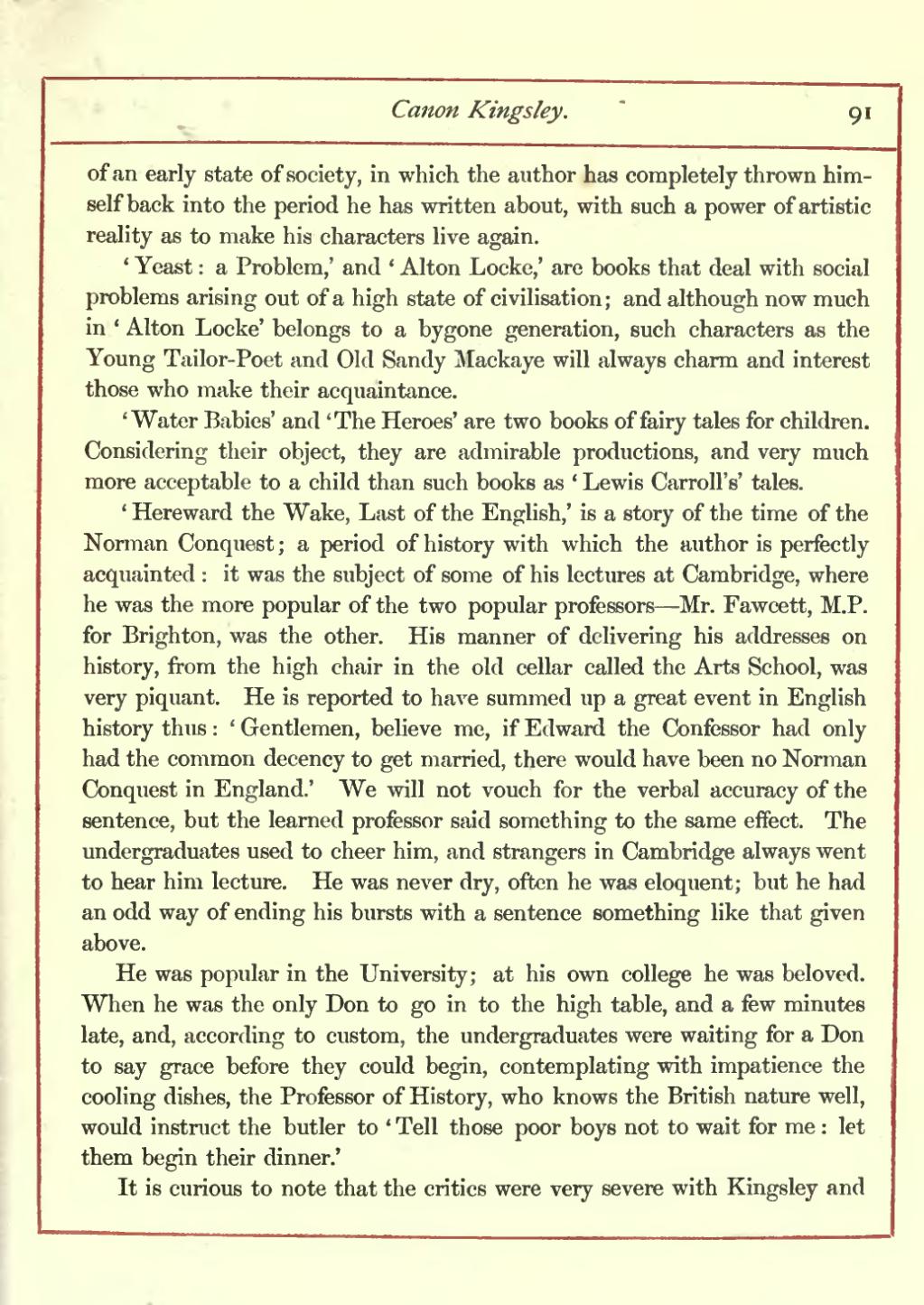of an early state of society, in which the author has completely thrown himself back into the period he has written about, with such a power of artistic reality as to make his characters live again.
'Yeast: a Problem,' and 'Alton Locke,' are books that deal with social problems arising out of a high state of civilisation; and although now much in 'Alton Locke' belongs to a bygone generation, such characters as the Young Tailor-Poet and Old Sandy Mackaye will always charm and interest those who make their acquaintance. 'Water Babies' and 'The Heroes' are two books of fairy tales for children. Considering their object, they are admirable productions, and very much more acceptable to a child than such books as 'Lewis Carroll's' tales.
'Hereward the Wake, Last of the English,' is a story of the time of the Norman Conquest; a period of history with which the author is perfectly acquainted: it was the subject of some of his lectures at Cambridge, where he was the more popular of the two popular professors Mr. Fawcett, M.P. for Brighton, was the other. His manner of delivering his addresses on history, from the high chair in the old cellar called the Arts School, was very piquant. He is reported to have summed up a great event in English history thus: 'Gentlemen, believe me, if Edward the Confessor had only had the common decency to get married, there would have been no Norman Conquest in England.' We will not vouch for the verbal accuracy of the sentence, but the learned professor said something to the same effect. The undergraduates used to cheer him, and strangers in Cambridge always went to hear him lecture. He was never dry, often he was eloquent; but he had an odd way of ending his bursts with a sentence something like that given above.
He was popular in the University; at his own college he was beloved. When he was the only Don to go in to the high table, and a few minutes late, and, according to custom, the undergraduates were waiting for a Don to say grace before they could begin, contemplating with impatience the cooling dishes, the Professor of History, who knows the British nature well, would instruct the butler to 'Tell those poor boys not to wait for me: let them begin their dinner.'
It is curious to note that the critics were very severe with Kingsley and

